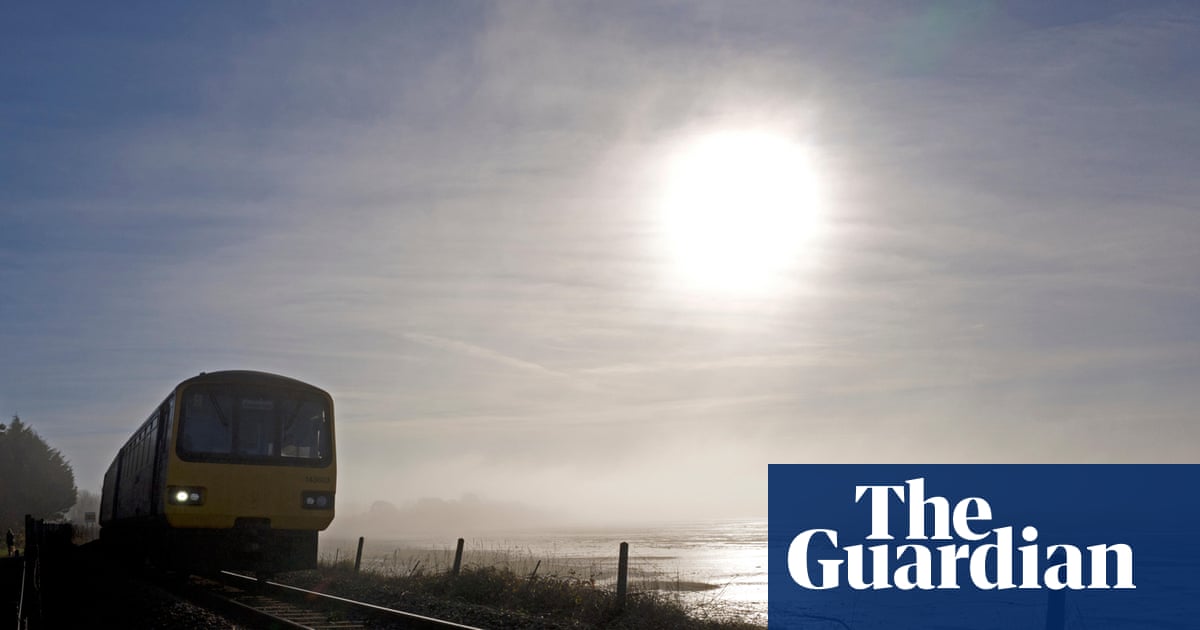The Christmas market doesn’t know what’s hit it. At 8.30 on a mid-November morning Exeter is a whirl of white, a city half-blinded by tumbling flakes. Four market workers, caught out by this overly authentic addition to the festive decor, are busy shovelling the ground in front of the bao stalls and craft gin chalets. Above them, the cathedral’s medieval towers stand tall and cold in the heaven-filling flurry. Winter has arrived in Devon with bells on.
I’m here to catch a train to see some birdlife. A breakfast blizzard wasn’t part of the plan, but sometimes these things don’t go as expected. The city’s Queen Street has turned into a real-life snow globe – Narnia with sandwich shops – yet the little two-carriage train I’m catching trundles into Exeter Central bang on time. I find a window seat and settle in. Snowy rooftops roll by. Somewhere, an estuary lies in wait.
The Avocet line – named after the wader bird on the RSPB logo – runs between Exeter and the coastal town of Exmouth. It’s an epic rail journey, but not in the customary sense. “That’s £6.40 return,” says the ticket-seller. “And not a problem to break your journey in Topsham on the way back.” Built in 1861 as the Exmouth branch railway, the line covers a mere 11 miles, passes eight small stations and takes less than 30 minutes to travel end to end. For the second half of its length, however, the track hugs the shoreline of the Exe estuary – which is where the magic comes in.
The estuary is a fine spectacle in any season, more than a mile across at its widest point and stretching for eight miles. It’s sheltered by hills, lined by sandbars and sprinkled with shipwrecks. There’s year-round birdlife, in winter especially as more than 20,000 birds base themselves here to feed on the vast, nutrient-rich mudflats. Each muddy cubic metre, it’s said, provides the same energy as 14 Mars bars. The majority of avian visitors are seasonal migrants, drawn to this brackish low-tide buffet from their more northerly breeding grounds. For hungry waders, it’s the place to be.
But when the…
Click Here to Read the Full Original Article at Travel | The Guardian…
